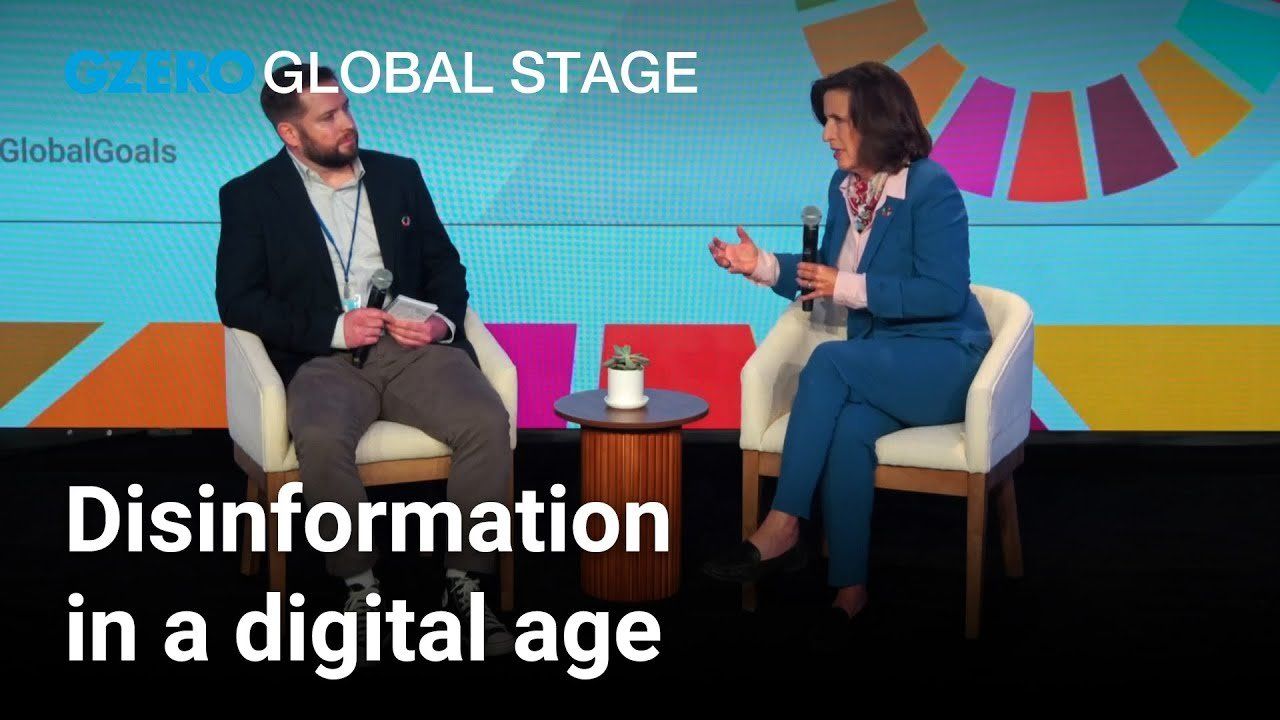September 28, 2024
Disinformation is running rampant in today’s world. The internet, social media, and AI — combined with declining trust in major institutions — have created an ecosystem ripe for exploitation by nefarious actors aiming to spread false and hateful narratives. Meanwhile, governments worldwide are struggling to get big tech companies to take substantive steps to combat disinformation. And at the global level, the UN’s priorities are also being hit hard by these trends.
“We can't bring about and generate stability in fragile environments if populations are turning against our peacekeepers as a result of lies being spread against them online. We can't make progress on climate change if people are being led to believe first of all, that maybe it doesn't even exist, or that it's not as bad as they thought, or that it's actually too late and there's nothing that they can do about it,” Melissa Fleming, the UN's Under-Secretary-General for Global Communications, told GZERO in a conversation at the SDG Media Zone during the 79th UN General Assembly.
“The UN alone cannot tackle these problems without civil society, without people. And the people are what drives political agendas. So it's really important for us to work on our information ecosystems together,” Fleming added.
Though Fleming said that many in the UN are excited by AI's myriad potential benefits, she also emphasized the serious problems it’s already posing in terms of accelerating the spread of disinformation—particularly via deepfakes.
“We've spent a lot of time also trying to educate the public on how to spot misinformation and disinformation and how to tell if a photo is real or if it is fake. In the AI information age, that's going to become nearly impossible,” Fleming said.
“So we're calling on AI actors to really create safety by design, and don't leave it only to the users to be able to try to figure out how to navigate this. They are designing these instruments, and they can be part of the solution,” she added.
More For You
Most Popular
With the US leading production and China driving new reactor development, Bank of America breaks down the who, what, where, when, and why behind nuclear’s return. Stay ahead of global energy trends with Bank of America Institute.
Chris, an Army veteran, started his Walmart journey over 25 years ago as an hourly associate. Today, he manages a Distribution Center and serves as a mentor, helping others navigate their own paths to success. At Walmart, associates have the opportunity to take advantage of the pathways, perks, and pay that come with the job — with or without a college degree. In fact, more than 75% of Walmart management started as hourly associates. Learn more about how over 130,000 associates were promoted into roles of greater responsibility and higher pay in FY25.
Last week, at the Munich Security Conference, a group of global technology providers, including Microsoft, announced the Trusted Tech Alliance — committed to shared, verifiable principles for trusted, transparent, and resilient technology across borders. At a moment of economic volatility and zero-sum technological competition, countries and customers are demanding greater accountability from technology providers. The Alliance addresses this by bringing together companies from across Africa, Asia, Europe, and North America around shared commitments: transparent governance, secure development practices, supply chain oversight, open digital ecosystem, and respect for the rule of law — ensuring the benefits of emerging technologies strengthen public trust while driving job creation and economic growth. Explore the Trusted Tech Alliance here.
© 2025 GZERO Media. All Rights Reserved | A Eurasia Group media company.
